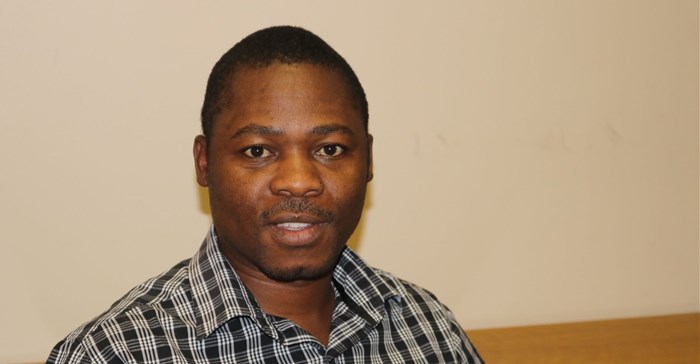President Cyril Ramaphosa's State of the Nation Address (Sona) theme was "Following up on our commitments. Making your Future Work Better." The objectives of which were twofold: firstly, to appeal to business and the investment community which would be carefully listening for indications of policy consistency; and secondly, winning over South Africa's voting public who would listening for messages of hope that a better future is within grasp.

Dr Binganidzo Muchara
Hitting the target on both counts, Ramaphosa, the business person, spoke of the billions of rands circulating in South Africa’s economy, he outlined financial targets and what can be achieved through the fiscus (with the private sector as a firm partner). As a politician he highlighted the significant achievements made, most particularly in the realms of health and education, without losing sight of the urgency to do more.
Taking a step backwards, it is important to be aware that Ramaphosa’s Sona does not exist in a vacuum. It is offset by his economic stimulus and recovery programme that was announced last year in September and which in turn was further articulated by Finance Minister Tito Mboweni in his Medium-Term Budget Policy Statement (MTBPS) in October.
The key objectives of the economic stimulus and recovery programme were to:
- Implement growth-enhancing economic reforms;
Reprioritise public spending to support job creation;- Establish an infrastructure fund;
- Address urgent and pressing matters in education and health; and
- Invest in municipal social infrastructure improvement.
The Competition Amendment Bill
Ramaphosa committed to signing this somewhat controversial Bill into law. Designed as a transformation tool, the bill explicitly defines contraventions and uncompetitive conduct by companies in relation to the Competition Act.
Read together with the BBBEE policy, a question to consider is to what extent do these two pieces of legislation work either for or against one another? The general perception in the economy is that BBBEE is not producing expected results which will arguably be remedied in part through the Competition Amendment Bill.
SOEs
The plight of SOEs has been threaded throughout Ramaphosa’s addresses since last year, headlined by Eskom.
A signal that Eskom’s turnaround is slowly beginning to emerge is evidenced by the utility having to develop a nine-point plan for presentation prior to Tito Mboweni’s Budget speech on 20 February and the proposed restructuring of the power utility into three parts (generation, transmission and distribution).
However, with a debt of R419bn and an anticipated loss of around R20bn for the year through March as coal and maintenance costs increased, it will be critical for Budget 2019 to outline just where the source of funds will come from. With an overstretched budget and a junk status credit rating from two major credit rating companies, time is of the essence.
A knock-on effect of poorly managed state resources is a growing culture of non-payment for services, which is negatively impacting service delivery at local and national level.
Education and skills development
Ramaphosa announced that two additional years of compulsory pre-primary school will be incorporated into the education system. The MTBPS last year outlined that 15% of the R1.7trn allocated to consolidated expenditure for social spending last year goes to basic education. Education is the fastest growing area of expenditure.
Into this mix, the notion of digitalisation of education materials - although welcome - is slightly incongruous. Many schools continue to lack basic infrastructure such as electricity and network connectivity, thus the idea of digitalisation needs to be carefully considered on a scale of need. Additional costs associated with IT technicians to maintain the gadgets and servers, often significant amounts, must also be taken into account.
At high school level, in an effort to expand participation in the technical streams, several ordinary public schools will be transformed into technical high schools. However, teacher training colleges will be needed to be brought onstream in order to equip teachers for this new development to ensure that there are sufficient human resources to deliver the subjects.
Ramaphosa has undoubtedly announced some exciting possibilities in our educational landscape. But it will be up to Mboweni to balance the numbers.
Land reform let down
Land reform and the expropriation of land without compensation, while the biggest area of contestation in the public domain, has seen the least political movement since last year. From a voter perspective, it is going to be crucial for the ruling party to be seen as actively engaging with past injustices and moving the process forward.
Yet the policy is still not clear on how this it will be implemented. As such, we don’t expect much to come out of the upcoming budget. You cannot attach figures to something that is not clearly defined. This remains a concern for both domestic and international investors. Lack of clarity might be hampering new investment in the agricultural sector, so this has to be resolved as a matter of urgency.
Conclusion
By focusing in on some aspects of the Sona there are strong indications that Ramaphosa and his government are aiming for policy consistency. The next coming months will be critical in seeing whether this does bear up to scrutiny. But most importantly, it will be up to Mboweni’s budget to take Ramaphosa’s desire of ‘following up on our commitments’ and creatively carve up the fiscus to ‘make the future work better.’







































